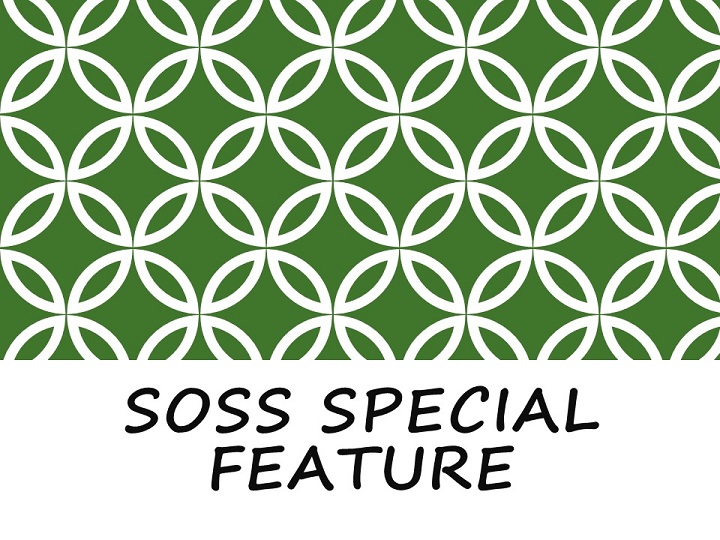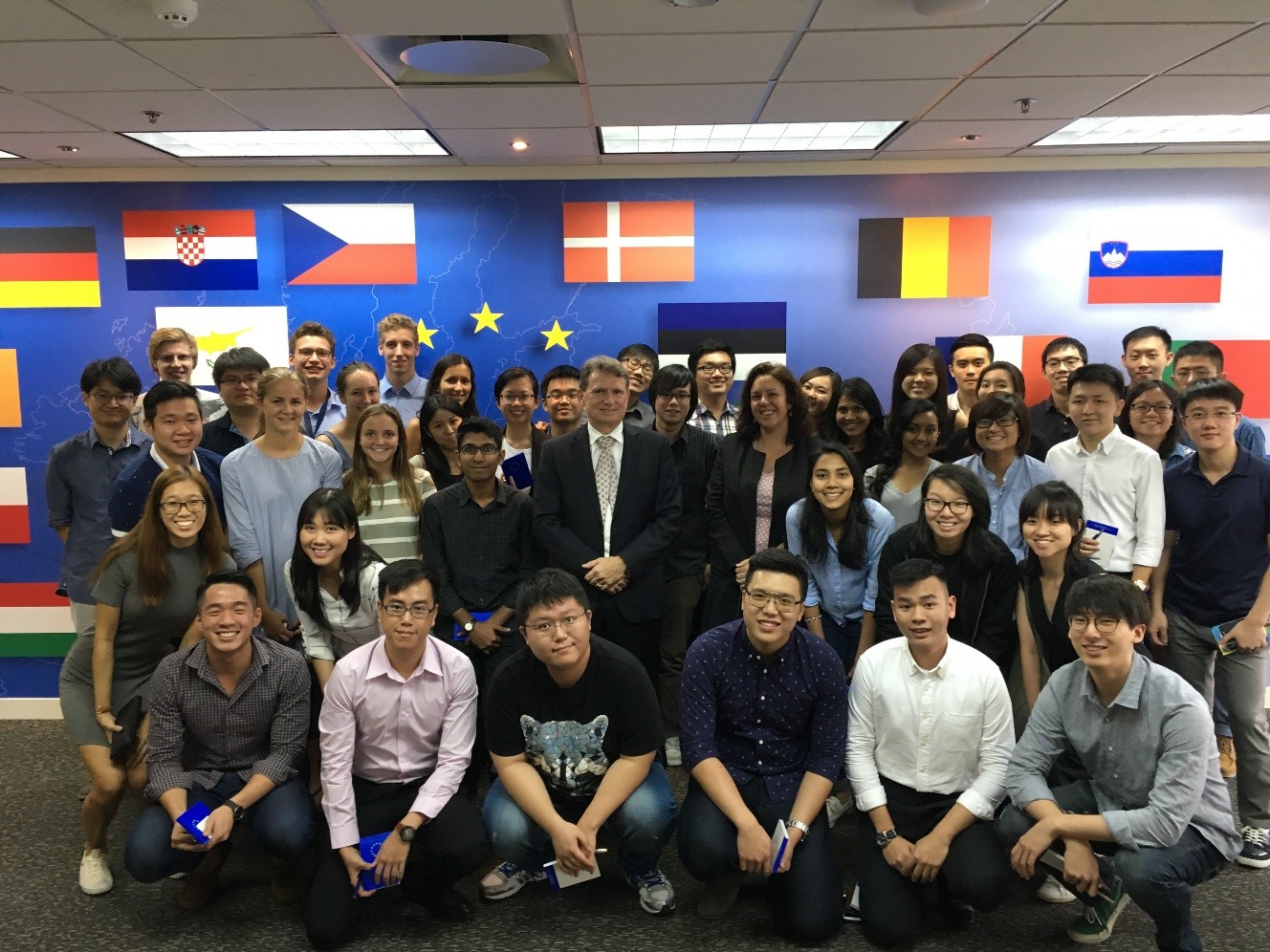
Esther Lam Yu Ting (BSocSc Class of 2018)
Estelle Ho Wen Xuan (BSocSc Class of 2019)
Brooke Reis (Exchange Student from Babson College)
During our European Union Politics course, we had the opportunity to visit the European Union (EU) Delegation in Singapore to learn more about the relationship between Singapore and the EU. We acquired a better understanding of the European perspective on EU-Singapore negotiations. Enlightening, Enriching and Captivating were three words that encapsulated our visit to the EU delegation.
Upon our arrival, we were welcomed with a warm speech by the EU Ambassador to Singapore, Dr Michael Pulch, about EU’s involvement in Asia – from the economic realm, as a major investor in the region, to initiatives in non-traditional security, such as maritime security, and its participation in conferences on terrorism, pandemics, non-proliferation and organised crime in Asia. In his address, Ambassador Pulch highlighted the importance of economic agreements, such as 2013 EU-Singapore Free Trade Agreement (FTA), as well as the reasons why the planned EU-ASEAN trade agreement was never completed. We later discussed what political and social matters the EU and Singapore were cooperating on in order to move towards a stronger partnership in the future. In a previous class session, former Singapore Ambassador to the EU Ong Eng Chuan had explained Singapore’s viewpoint. Our visit to the EU delegation therefore complemented our understanding of the EU-Singapore economic and political ties. Overall, the talk provided us with an inside perspective on previous negotiations and understand the high hopes for further development and cooperation between the EU and Singapore.
The Q&A session touched on Brexit, where His Excellency commented on the rise of populism, and he stated that the Singaporean government was not in favour of the United Kingdom leaving the EU. It was here that we felt Ambassador Ong and His Excellency affirmed common values of openness and economic cooperation between Singapore and the EU. These similarities were all the more important in the face of rising backlash against globalisation and an emerging trend of populism around the world. During the Q&A session, the class also brought up questions concerning human rights. His Excellency’s words connected to the talk that Ambassador Ong Eng Chuan had shared some weeks earlier, when he suggested that Singapore’s stance on the death penalty as well as cultural differences had been an issue in the negotiation of the EU-Singapore free trade agreement. Through their speeches, we got to understand how the class presentation on the EU as a normative power was linked with real-world diplomatic concerns, where the EU’s role in redefining what is “normal” in international relations was instrumental in the negotiation of trade agreements or Partnership and Cooperation Agreements (PCAs) with third countries.
It was fascinating how our knowledge about the European Union came to life for us in the two dialogue sessions that took place in our course with Singapore Ambassador Ong Eng Chuan, and the other with EU Delegation Ambassador Dr Michael Pulch. It was very thought-provoking hearing from both speakers because we got to learn about the workings and functions of the EU from different angles. Ambassador Pulch referred to the EU Delegation as being a united representation of all EU member states. Ambassador Ong provided us with a rare insight into collaboration with the EU; and we learned that each of the twenty-eight member states may hold distinct viewpoints. Thus, collaboration with the EU is actually a relatively complex process, as it entails conducting talks with individual member states and not just having talks at a centralised level. This corresponded to what we had learned in class – that there are different levels of EU competences, some that are exclusive, and some that are shared competences. All of these nuances helped shape cooperation with EU bodies, internally as well as externally. The dialogue sessions were truly fulfilling and insightful to our learning and we really appreciate these opportunities that Prof. Clara Portela had provided us.
 Photo Credit: Shilpi Tripathy (SMU School of Economics Undergraduate)
Photo Credit: Shilpi Tripathy (SMU School of Economics Undergraduate)